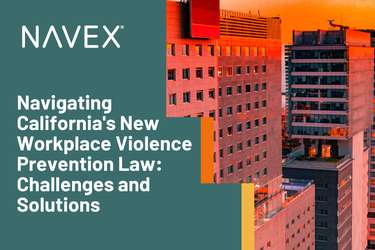For employers, enforcing workplace drug policies in states where medical marijuana use is legal could boil down to workplace values and culture. And it’s an issue companies will be facing more and more.
More than 25 years ago, Congress enacted the federal Drug-Free Workplace Act, which allowed the government and companies that contracted with the government to incorporate drug-testing policies. Soon thereafter, many companies followed suit, and today more than one-third of private employers have drug-testing polices, according to the Department of Labor.
But the Act took effect long before many states—23, in fact, as well as Washington, D.C.—began legalizing marijuana for medical use, raising a host of cultural and ethical questions for employers.
Case In Point
Take the case of Brandon Coats, a Dish Network employee, who became quadriplegic after a serious car accident when he was 16. Years later, Coats still suffered from pain and muscle spasms, so a doctor prescribed him marijuana for pain management. Dish, like many employers, has taken a zero-tolerance stance on its drug policy. This means that, despite the fact that Coats legally took the drug for a medical reason, he was let go when he tested positive during a random drug test. Coats sued Dish, and a lower court ruled in Dish’s favor. The case is now waiting to be heard by the Colorado Supreme Court.
While Coats’ case may be among the first of its kind, it certainly won’t be the last. Among the states that allow marijuana for medical use, very few offer protection for employees if they test positive. And because marijuana (for any use) is still illegal under federal law, the Americans with Disabilities Act doesn’t offer protection either.
Four Tough Questions To Ask About Your Organization’s Drug Policies & Culture
As a result, the onus is on employers to consider these four tough but important questions:
- Do we take a zero-tolerance stance on our drug policy?
- Which states allow medical use and provide employees with job protection?
- Do we allow employees to use medical marijuana in states where it’s legal (but no legal protections are afforded to employees)?
- And if we allow use of medical marijuana where it’s legal, would we still take a zero-tolerance policy in states where it isn’t?
The answers to these questions—which employers should be thinking about now rather than waiting for the situation to arise—should be found within an organization’s corporate culture. Considering its culture can help a company decide if it should take a hard stance on the issues of marijuana despite its legality, or be more flexible in how its employees legally address their medical issues.
Gaining Consensus Around Your Organization’s Stance
But coming to that decision is far from easy—nor is it the job for a single company executive or department. It’s important for decision-makers to sit down with all of the company’s relevant stakeholders to determine how the application of its drug policy fits into the company’s culture.
"It’s important for decision-makers to sit down with all of the company’s relevant stakeholders to determine how the application of its drug policy fits into the company’s culture."
When the Colorado Supreme Court ultimately decides the Dish Network case, we will be a step closer to answering that million-dollar question. But as the laws continue to change, the country appears to be moving in the direction of more legalization of medical marijuana. The question will be tested time and time again, and employers should be ready to address these issues before their own situations arise.
For more on this topic, view our earlier blog post, “Getting Ahead of the Changing Legal Landscape Around Marijuana Use: Avoiding Nine Common Policy Mistakes” or download our complimentary legal brief, “Does Your Company's Drug-Free Workplace Policy Pass Muster in Today's Legal Climate?”







